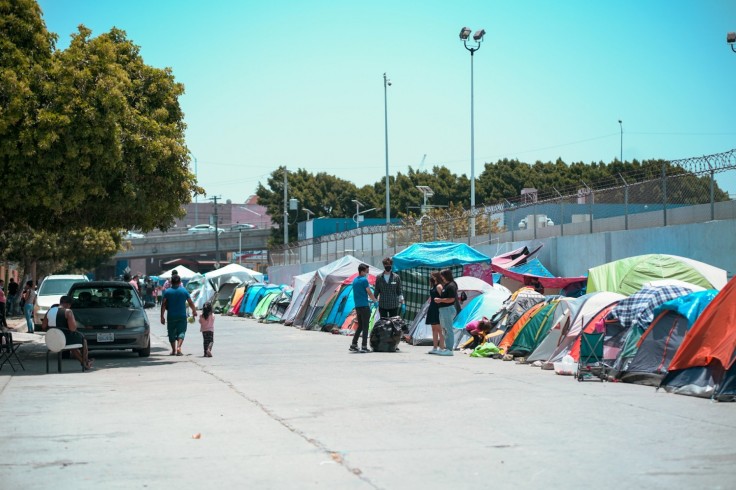
After months of offering temporary shelter to its growing migrant community, Denver has launched a new strategy to help these individuals transition to more stable lives.
The plan includes six months of housing, job training, language instruction, and legal assistance with asylum claims.
New Strategy to Help Migrants Transition Into More Stable Lives
As of Wednesday, approximately 800 people have joined the program, with more anticipated by the end of the month, according to Jon Ewing, a spokesperson for Denver's newcomer response.
Denver, along with New York and Chicago, has been agonizing to take in a growth in migrants over the past two years. These cities have used hotels, tents, and other temporary shelters while trying to give social services without overwhelming their budgets.
Both Chicago and New York have imposed stricter limits on shelter stays and started evicting those who have overstayed.
"Our goal was to turn a crisis into an opportunity," said Denver Mayor Mike Johnston. "We have new arrivals who are eager to work and have valuable skills, and employers who need workers.
We aimed to connect these individuals to job training and skills needed for our local economy. Thus, we created this first-of-its-kind asylum-seeker program."
Migrants enrolled in the Denver Asylum Seekers Program, who were in the city's shelters as of April, receive support during the six-month wait for work permits after filing asylum applications, Ewing explained.
Johnston emphasized, "We viewed the six-month waiting period as an opportunity rather than a problem." Participants in the program will receive workforce training, English classes, financial literacy education, and certifications required for certain jobs.
"When they receive work authorization, they will be ready to start working immediately, benefiting Denver employers," he added.
Since Texas Governor Greg Abbott began sending migrants to Democratic cities in 2022, around 42,000 have arrived in Denver. Most have moved to other cities where they have connections.
Nearly 800 People in Denver's Migrant Shelters
Currently, around 800 migrants are in Denver shelters, with about 530 in a hotel shelter and the rest in transitional housing or other short-term shelters. Some have already moved into apartments.
Denver has fewer people in its shelter system compared to Chicago and New York City. Chicago has over 7,200 migrants in shelters, while New York City has over 65,800 migrants and asylum-seekers needing shelter.
Despite having fewer migrants overall, Denver officials claim the city has welcomed more per capita. Ewing mentioned that with fewer new arrivals, about 76% of whom move to other destinations, Denver can now offer more intensive support to those staying.
In December, Denver received 144 charter buses with new migrants, swelling its shelter population to about 5,000, many of them families. This situation was unsustainable, leaving many migrants searching for under-the-table jobs, Ewing said.
"The goal now is to provide more sustainable services to a smaller, more manageable group," Ewing explained.
Denver Spent Substantial Amount of Money on Migrant Response
Denver has spent around $70 million on its migrant response since 2022, including $20-25 million this year. Shelter costs have been significantly higher than housing costs. Ewing noted that reducing reliance on shelters would lower expenses, potentially saving millions.
The city has budgeted $90 million for its new arrivals program this year, aiming to spend less if possible. This budget includes $4 million for workforce training and rental assistance, and $5.6 million for case management, including asylum clinics and work authorization.
To fund the migrant response, city officials have defended a $40 million budget cut, largely from not filling vacant positions.
Some critics have opposed an $8 million cut from the police department's budget, but the city maintains that this will not affect street patrols or recruitment plans.
Johnston hopes the program will inspire other cities to adopt similar approaches. "We believe we have a model that any city can use. Denver can't solve this problem alone," he said.
Related Article : Chicago Set to Evict 2,000 Migrants from Shelters Beginning Sunday